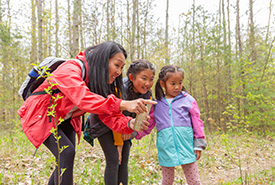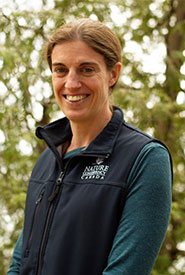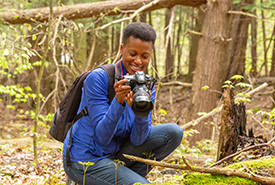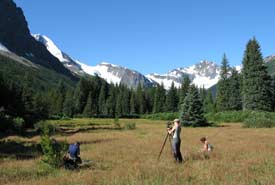Big Backyard BioBlitz: Snapshots and sound bites to help nature

Big Backyard BioBlitz (Photo by Kontakt)
Just like nature, community science has room for everyone, from the eagle-eyed expert to the newly hatched naturalist. And your contributions can help scientists and conservation organizations like the Nature Conservancy of Canada (NCC). “You don’t have to be an expert to make a significant discovery,” says Mhairi McFarlane, NCC’s director of science and stewardship in Ontario.

Mhairi McFarlane (Photo by NCC)
There’s an exciting opportunity to make your own discoveries by joining NCC’s annual Big Backyard Bioblitz, taking place August 1 to 5. Take photos or record audio to document the nature around you, wherever you are. It’s a fun and easy way to get outside to mark the first weekend in August.
A bioblitz — a community-science effort to document as many species as possible within a specific area and time period — is not a new concept. All you need is a smartphone, tablet or digital camera to participate.
“The BioBlitz can be helpful for research, especially if people document something we weren’t aware of, such as non-native invasive species,” says Mhairi, “which then allows us to take action to deal with it.” Every photo or audio recording people capture is a chance for environmental organizations and scientists to get a better picture of nature in Canada.
Mhairi stresses that you don’t need to be in the wilderness to make a difference. Although the BioBlitz is a great time to visit your favourite spot in nature (or explore somewhere new), plants and animals are found from wilderness to urban areas. And scientists need information from every corner of Canada, so no matter where you are, you can contribute.

Big Backyard BioBlitz (Photo by Kontakt)
Data collected during past NCC BioBlitzes is useful to scientists, educators and nature enthusiasts, says Mhairi, not to mention NCC and other conservation organizations. Last year marked the largest to date, with more than 9,700 participants across Canada documenting more than 58,000 observations.
Community science has power in numbers, observes Mhairi. “For every 20 people who document a black-capped chickadee, one person could identify a species at risk like a red-headed woodpecker. It can really help when NCC staff monitor the site themselves,” she says. NCC’s BioBlitz provides a wealth of data about species and their locations, data that would be a real challenge to gather through other means.
The BioBlitz can be a chance for a deeper connection with nature, says Mhairi. “Hopefully, it will open people’s eyes to the natural world in way they might not have had an opportunity to before.”
Get out into your community and experience nature with your friends, family or solo. Then share your photos and recordings on your social media accounts using the hashtag #NCCBioBlitz to be entered to win prizes!
Ready to join? Sign up here!


